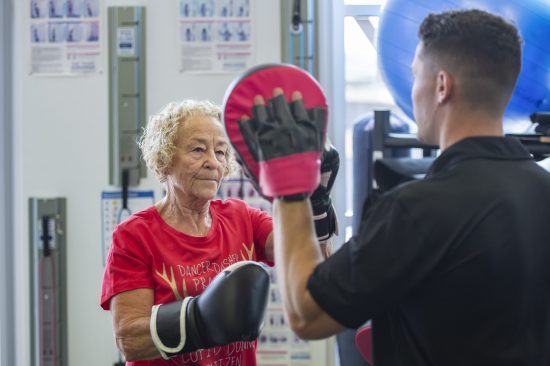
Diabetes is a medical condition affecting 1 million Australians. Remarkably, it is believed that 50% of people with diabetes are undiagnosed. Diabetes affects the ability of the body to produce and use a hormone called insulin. Insulin acts as a key to “unlock the doors” of our muscles so that glucose (sugar, aka energy) can be used. You or someone you know may have diabetes or be at risk of developing this condition. In either case it is important to know that there are things that you can do.
Alongside monitoring and managing diabetes through diet and if appropriate, medication, exercise also plays a very significant role in the management process. It is important that an exercise program to assist in the management of diabetes includes both aerobic or cardio activities, such as walking, swimming or cycling (or dancing or whatever makes you breath a little harder for an extended period of time) and resistance such as weight or body weight exercise.
Exercise works by improving how efficiently the body uses energy and insulin. If we consider the “opening the door” effect of insulin, then imporved exercise tolerance will mean that the door is easier to open. Exercise also increases the size of our muscles, which enhances the capacity of our muscles to store glucose.
We are currently taking enrolments for our next 8-week exercise and education program named Beat It – a course designed by Diabetes NSW. The Beat It program will be a perfect opportunity for those with a diabetes diagnosis or at risk of developing diabetes and who are looking to start exercising and make healthier lifestyle changes but not sure how.
Places are limited so get in contact with Diabetes NSW to book in and ensure you don’t miss out. Diabetes NSW details are as follows:
email: customerservice@diabetesnsw.com.au
Phone: 1300 342 238 or (02) 9552 9942
To ensure you are suitable for the program, an initial consultation will be held prior to the start of the program. If you have any questions feel free to give us a call on 02 4722 6994.
If you can’t get this class – that’s ok – exercise is still effective even when you do it alone. Check out our blogs on how to get started. How much exercise is enough? We’ve written about that too.
You may be interested in other articles we have written about diabetes including: